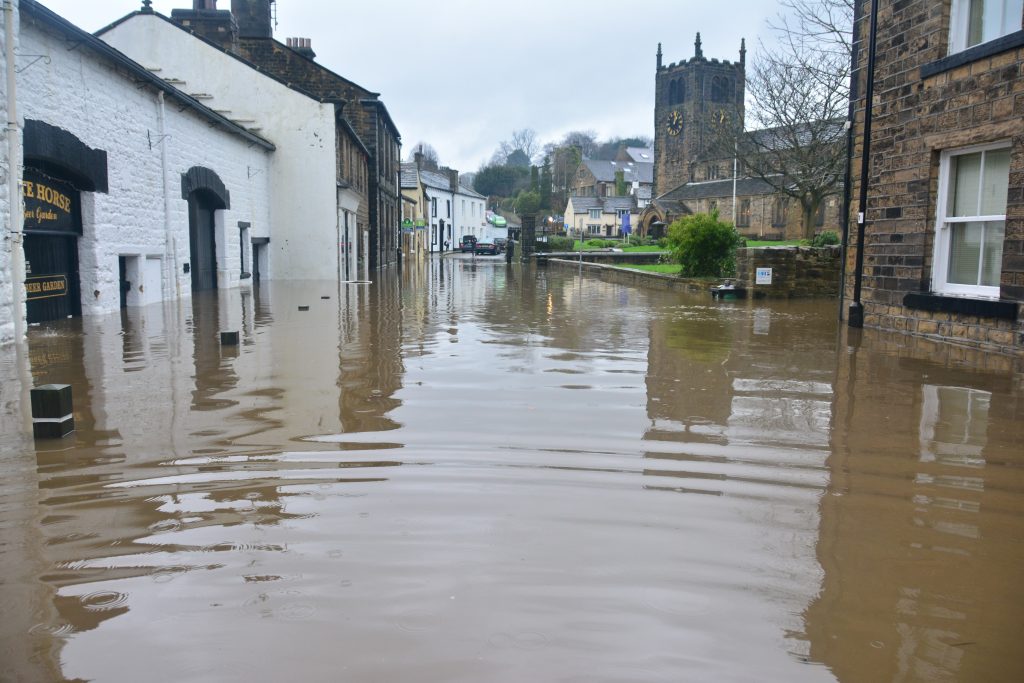
Knowledge Base / News
The NOAA has announced that Spring 2019 is expected to bring above-average rain to much of the continental United States.
The higher amounts of predicted rain combined with frozen ground and melting snow will result in near historic flooding for far too many states. In fact, flooding in much of the Midwest is unfortunately already occurring.
Organizations are 10 times more likely to suffer from water leak damage than they are from fire damage, so it’s critical that your business continuity plan covers the potential of water leaks in your facility. It’s also important to consider having temporary water leak barriers either on-hand or at the ready to help stop the flow of water if a leak occurs.

In the article linked above NOAA points out that 25 states have the potential to see moderate to major flooding. If you are in one of those states, having proactive flood and water leak monitoring is critical to maintaining uptime and helping to prevent data loss and physical damage to your facility.
Even the best proactive monitoring you’ve installed as part of your business continuity plan can’t fully protect your organization in the event of catastrophic flooding. Proactive monitoring can, however, notify you of the exact moment water began to intrude on your mission-critical areas, which can allow you to begin planning mitigation and recovery as soon as you confirm a leak has occurred.
Organizations that aren’t located near major bodies of water are still prone to flooding concerns; don’t let your landlocked location prevent you from taking precautions against flooding. Heavy rain can cause gutters, sewers and drainage to back up, causing potentially unseen and unexpected flooding into your facility. Roofs that have damage from winter storms can leak, as can windows that may have worked loose during winter winds.
We’ve seen the damage that unexpected water leaks can cause firsthand, with experience in our own building as well as at previous places of employment our employees have worked at.
One of our employees worked for a telecom company that moved its data center to a basement level in a newly constructed building. The data center was fully enclosed in glass for maximum visibility, and thankfully the data center was built on a raised floor. Two weeks after moving in, a massive spring rainstorm caused water to seep into the new office, mere feet from the data center. Thankfully this happened during business hours, allowing staff to immediately power down portions of the data center before severe damages could occur. Imagine if this happened at 3am on a Saturday when staff wasn’t onsite – hundreds of servers would have been irreparably damaged, causing terabytes of data loss.
Our own historic mill suffered flood damage a number of years ago when frigid winter temperatures caused frozen pipes in an unheated part of the building. It’s not a pleasant sight to arrive at your building in the early morning to see the fire department blocking off part of the street as water streams out of your second-floor windows. Thankfully in this situation the leak didn’t occur near any offices or our fulfillment area, so computers, files and our stock weren’t affected. If the water leak occurred just 50 feet in another direction, it would be a completely different story.

Many organizations have plans in place in the event of a fire or sustained power outage. With this Spring’s outlook, it’s critical to ensure your plan also covers water leaks due to heavy rains and potential flooding. Extreme inclement weather can happen in any location, regardless of environment, and water leak monitoring will help you to protect your sensitive electronics, data, goods, and much more. Additionally, having water leak barriers installed in your critical areas will help stem the flow of water if flooding occurs, and will also allow you to clean up much more quickly.
Insurance statistics have shown that water damage claims costing more than $500,000 has doubled just since 2015 and claims that cost more than $1 million have tripled! While insurance may help your organization recover in the event of a major leak, wouldn’t it be better for any possible leak to be a minor one that doesn’t cause your organization prolonged downtime and damages? Insurance claims can’t help rebuild lost customer confidence unfortunately if you’re forced to shut down for even a short time. Make sure proactive water leak monitoring is part of your business continuity plan now to help protect your organization against costly loss this spring and beyond.

You may find Windows Command Prompt at the following path:
To run Windows Command Prompt as an administrator:
| Current S models | Current E models |
|---|---|
| Room Alert 32S | Room Alert 32E |
| Room Alert 12S | Room Alert 12E |
| Room Alert 3S | Room Alert 4E |
| Room Alert 3E | |
| S models | E & W models |
|---|---|
| Room Alert 32S | Room Alert 32E |
| Room Alert 12S | Room Alert 12E |
| Room Alert 3S | Room Alert 4E |
| Room Alert 3E | |
| Room Alert 3W |
| Model |
|---|
| Room Alert MAX |
| Room Alert 32S |
| Room Alert 12S |
| Room Alert 3S |
| Room Alert 32E/W |
| Room Alert 12E |
| Room Alert 4E |
| Room Alert 3E |
| Room Alert 3 Wi-Fi |